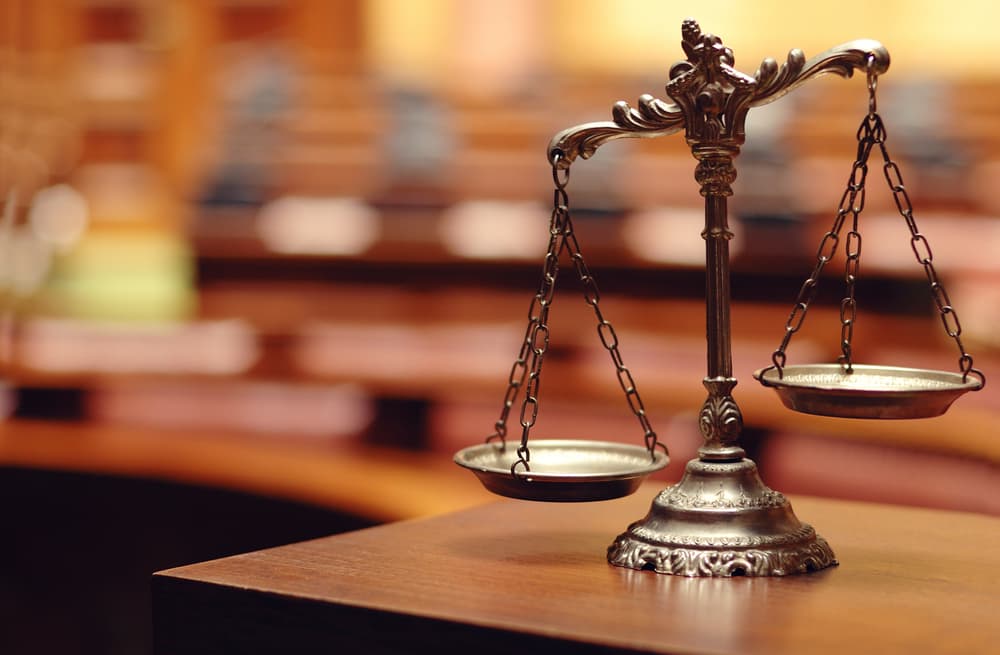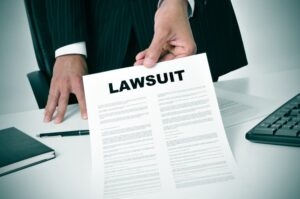Will My Personal Injury Case Go to Trial?

If you were injured due to someone else’s negligence, you may have filed a personal injury (PI) lawsuit to seek compensation. A common question many plaintiffs have is whether their case will end up going to trial. The answer depends on several factors.
What Happens After Filing?
 Once you officially file your personal injury lawsuit against the defendant(s), the pre-trial discovery process kicks off.
Once you officially file your personal injury lawsuit against the defendant(s), the pre-trial discovery process kicks off.
Discovery is an involved stage. Both sides gather and exchange critical information and evidence pertaining to the case.
Your personal injury attorney will guide you through all the required steps and make sure you comply with the discovery rules. Here’s generally what you can expect during this lengthy phase:
Providing Documentation
You’ll need to turn over any records, documents, bills, and other paper trails related to your injury and damages.
This includes:
- Complete medical records and diagnostic test results from all treatment
- Itemized bills and receipts showing the costs of your medical care
- Pay stubs or income documentation if you missed work and lost wages
- Records of any employment benefits you may have lost access to
- Photos or videos depicting your injuries and their impacts
- Proof of other damages like transportation costs for medical visits
Your lawyer will request these kinds of records from you early on and organize them as exhibits.
Giving a Deposition
You will also have to provide sworn testimony in an oral deposition conducted by the defense lawyers.
They will ask you detailed questions covering:
- How the accident/incident occurred and the circumstances around it
- The injuries or harm you suffered and symptoms you experienced
- The medical care and treatment you received after the incident
- How the injuries have affected your normal daily activities and ability to work
- Other losses or damages you’ve dealt with due to your injuries
Your lawyer will prepare you ahead of time for this formal questioning. It could last several hours or may take place over multiple days.
Independent Medical Exam
In many personal injury cases, the defendant’s legal team requests that you undergo an independent medical examination (IME) by a doctor they appoint.
This outside physician will evaluate:
- The seriousness and expected duration of your injuries
- The appropriateness of medical care you have received so far
- Whether your injuries stemmed from the accident or other causes
- Your physical condition and any limitations or disability
- The prognosis for your future treatment and likelihood of recovery
Additional Information
Depending on your situation, you may need to fulfill other discovery requirements such as:
- Appearing at an inspection of the accident/injury scene by both sides
- Answering interrogatories or written questions from the defense
- Providing access to other documentation or data requested
- Allowing interviews or depositions of other relevant witnesses
The discovery phase is extensive. Both parties need to fully prepare supporting evidence before deciding how to proceed in settlement talks or at trial. While time-consuming, it increases your chances of a favorable outcome down the line.
Attempting to Settle Before Trial
While some personal injury lawsuits do make it all the way to trial, the vast majority reach settlement agreements long before that stage. There are several compelling reasons why both plaintiffs and defendants often find it preferable to negotiate a settlement instead of leaving the outcome up to a judge and jury.
The Advantages of Settling
On the plaintiff’s side, agreeing to a settlement provides some guaranteed compensation and resolution, albeit typically less than may be awarded at trial. It avoids the stresses and expenses of a lengthy court battle with an uncertain outcome.
For defendants and their insurance providers, settling allows them to limit their financial exposure. Even if they are somewhat confident in their case, taking it to trial always carries the risk of potentially having to pay out significantly more if they receive an unfavorable verdict.
Additionally, settlement negotiations and amounts agreed to remain confidential between the parties involved. Conversely, any evidence, testimony, or compensation awards from an actual trial become public record.
How Settlement Negotiations Work
If your personal injury case shows potential for settlement after the discovery phase, your attorney and the defense lawyer will get down to careful negotiations calculating a fair value for:
The Nature and Severity of Your Injuries
The first major consideration is your injuries’ seriousness, the extent of your medical treatment, and your prospects for maximum recovery. Cases involving severe trauma, disability, scarring, or permanent diminished capacity justify higher settlement values.
Past and Future Medical Costs
This includes full compensation for all medical expenses already incurred. It also includes funds to cover the costs of any ongoing or future projected care, treatment, procedures, equipment, medications, transportation, etc. Life care planners may calculate these long-term needs.
Lost Wages and Earning Capacity
You’ll get back wages you’ve already missed from time off work. Your settlement should also factor in if your injuries will lower your future earnings due to physical limitations or disability.
Pain, Suffering, and Reduced Enjoyment
This non-economic portion compensates you for the physical pain, emotional trauma, lifestyle limitations, and diminished quality of life you’ve endured from your injuries. These damages are incredibly subjective but quite important.
Strength of Liability Against Defendant(s)
If you clearly establish the defendant’s negligence or liability through strong evidence, this increases your settlement leverage. The more ambiguous the fault, the more both parties may need to compromise.
Other Economic Damages
Depending on the situation, your settlement could include amounts for damaged property, required home modifications, transportation costs, household assistance services, and any other financial impacts stemming from your injuries and recovery.
Your Personal Injury Attorney’s Role
Your lawyer’s sole role is to advocate for a good settlement. The settlement should give maximum compensation for all your economic and non-economic damages.
Your lawyer will negotiate to achieve the best possible outcome through settlement instead of risking a trial.
If the two parties agree on a number that your lawyer finds acceptable and adequate to make you whole, the case settles with a binding agreement. If not, your attorney may advise proceeding to court.
When Does a Case Go to Trial?
There are a few key reasons why a personal injury case may ultimately proceed to trial:
No Settlement Agreement
If your lawyer cannot obtain a reasonable settlement offer after negotiations, they may advise taking the case to trial. The defense may argue your injuries were not as severe or that their client did not cause your injuries through negligence.
You Reject Settlement Offers
Even if the defense agrees to pay some settlement amount, you have the right to reject it. Your lawyer will provide advice, but the final decision is yours.
You Seek Maximum Compensation
Taking your strong case to trial may be advisable to get the largest compensation award possible. But trials also mean risking getting no compensation if you were to lose.
How Long Does a Personal Injury Trial Last?
 If your personal injury case cannot be resolved through a settlement agreement, it will proceed to trial before a judge and jury. The length of these civil trials can vary considerably depending on the factors involved.
If your personal injury case cannot be resolved through a settlement agreement, it will proceed to trial before a judge and jury. The length of these civil trials can vary considerably depending on the factors involved.
Some personal injury lawsuits may wrap up quickly. Those with complex issues or catastrophic damages often require much more courtroom time.
Factors That Influence Trial Length
Several key details about your situation and injuries will impact the trial’s length. For example:
Severity and Type of Injuries
Cases involving severe trauma, debilitating injuries, or permanent disability understandably take longer to present all the relevant evidence and testimony. Cases centered around mild soft tissue injuries that healed within weeks may require less.
Medical Complexities and Expert Witnesses
When complicated medical issues, disease processes, or future life care needs factor into a plaintiff’s life, trials tend to take longer. You may need more time for examinations and multiple expert witnesses.
Number of Defendants
Claims against one defendant are typically simpler. This is unlike cases with many parties who might share liability. You must establish and address each defendant’s role individually.
Amount of Damages Sought
Pursuing compensation for big damages, like long missed work, loss of future earnings, or huge long-term care costs, adds layers of math. It makes the trial longer.
The Jury Selection Process
Before any trial can officially get underway, the preliminary step of selecting an impartial jury must occur first. During voir dire, the judge and attorneys question local potential jurors extensively. They ask about their backgrounds, relevant beliefs, and potential biases.
Both the plaintiff and defense lawyers can approve or reject certain jury members based on their answers. The trial can commence only once the court approves an acceptable panel of six to 12 jurors.
What Happens During a PI Trial?
While no two personal injury trials are identical, they do tend to follow a similar overarching structure:
Opening Statements
After the jury is seated, the attorneys for both sides will give opening statements. They will provide an overview of the key facts and legal arguments. They will present the points they plan to make during the trial.
Witness Testimony and Cross-Examination
The lengthiest portion involves the plaintiff’s legal team questioning any relevant witnesses. This is followed by cross-examination by the defense.
This testimony and evidence submission process may involve:
- You (the injured plaintiff)
- Any bystanders who saw the accident
- First responders or medical professionals involved in your treatment
- Economic experts calculating damages and future costs
- Accident reconstruction experts analyzing the incident
- Potentially dozens of other witnesses
Closing Arguments
Once both sides present all witness testimony and evidence to the jury, each side’s attorneys will have one final opportunity to summarize their arguments and key points in persuasive closing statements.
Jury Deliberation and Verdict
After those closing arguments conclude, the jurors are left to evaluate all accounts and documentation presented over the weeks (or months) of trial. They must reach a unanimous verdict, deciding whether the defendant is liable for your injuries and, if so, how much compensation you should receive.
Potential Outcomes
If the jury rules in favor of the plaintiff (you), they will award a specified amount of monetary damages to be paid by the defendant (or their insurance provider).
These can come in the form of a:
- Lump Sum: One single payment covering all economic and non-economic damages
- Structured Settlement: A customized stream of periodic payments over time
Conversely, if the jury finds the defendant is not liable, you would receive no compensation at all.
Call a Personal Injury Lawyer Today
No matter what you decide about settlement or trial, you need an experienced and skilled personal injury attorney. Proper legal representation takes away the disadvantage of going up against insurance companies and their team of corporate lawyers alone.
If you or a loved one suffered injuries due to someone else’s negligence or wrongdoing, don’t delay. Contact a respected personal injury law firm right away to explore your options.
Most reputable firms offer free, no-obligation initial consultations to evaluate your case’s merits. This allows you to get authoritative advice on your rights and legal standing before deciding how to proceed.

Ted R. Lorenz, Personal Injury Lawyer
Additionally, the vast majority of personal injury practices operate on a contingency fee basis. This means you won’t have to pay any upfront costs or hourly fees simply to have them represent you.
Their fees are paid later as a percentage of any settlement or court award they secure on your behalf. If they cannot obtain compensation for you, you owe them nothing.
Having this contingency arrangement allows injured victims of negligence to access high-quality legal services they may not otherwise be able to afford when paying out-of-pocket. It also motivates the law firm to fight to maximize your compensation since that also affects their pay.
With the right personal injury legal team supporting you and investigating every aspect of your claim, you’ll have the best possible chance at recovering full and fair compensation for:
- All medical costs, current and future
- Lost wages and diminished earning capacity
- Pain, suffering, and mental anguish
- Diminished quality of life
- Other economic and non-economic damages
Take action now by consulting a local personal injury lawyer to fully protect your rights and future.
